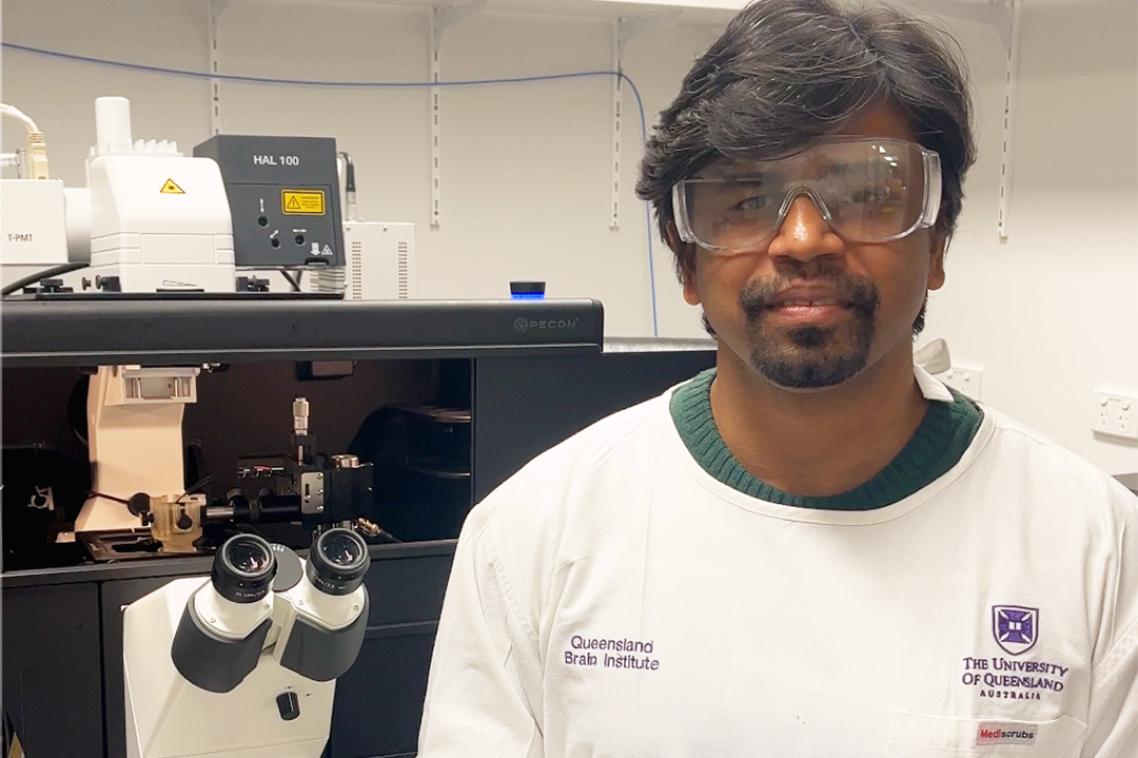Top honours for physiotherapy researcher passionate about stroke rehabilitation
The dream to help develop new and innovative rehabilitation strategies for people after stroke has secured a UQ researcher a prestigious fellowship from the American Australian Association.
Mr Michael Bergin, PhD student in the School of Health and Rehabilitation Sciences, has been awarded the 2014 UQ American Australian Association Post-Doctoral Fellowship.
Mr Bergin will travel to the USA to collaborate with Associate Professor Maurice Smith in the School of Engineering and Applied Sciences at Harvard University to conduct ground-breaking research into how the human brain learns and perfects new motor skills and controls movement.
Mr Bergin said this research could change the future of stroke rehabilitation in Australia by providing a more detailed understanding of how the brain works.
The condition, he said, cost Australia an estimated $5 billion in 2012, a figure primarily borne by individuals ($2.2 billion) and the Australian Government ($1.5 billion).
“Movement is fundamental to human existence, being the only way we have to interact with the world around us, however two-thirds of the 420,000 Australians living with the effects of stroke in 2012 were unable to fully participate in the community due to neuromotor impairments,” Mr Bergin said.
“Despite the enormity of the problem, neurorehabilitation after stroke is sub-optimal, due in part, to our poor understanding of motor learning and adaptation.
“My research in healthy individuals is a critical step in extending our knowledge of motor learning so it can be applied to understanding neurological disease.
“Ultimately, this research will contribute to the development of new treatments to help improve the lives of people after stroke.”
Mr Bergin said he strategically sought to collaborate with Dr Smith because of his extensive experience, expertise and research which involved a unique combination of theoretical, computational and behavioural neuroscience that is not available in Australia.
“All studies conducted within Dr Smith’s laboratory use a robotic arm that allows study of motor learning in novel situations unlikely to have been experienced outside the laboratory,” Mr Bergin said.
“However robotic arms are only available in a handful of laboratories around the world and experience in this laboratory will allow me to develop specialist knowledge and expertise.”
Mr Bergin’s research at Harvard will bring new skills and transdisciplinary collaborations between Harvard and UQ.
Mr Bergin will be presented his fellowship at the American Australian Association’s benefit dinner in New York on 5 November.
Media: Helen Burdon (07) 3365 7436, h.burdon@uq.edu.au
The University of Queensland has partnered with the American Australian Association to provide fellowships for advanced research and study.
UQ provides two fellowships each year, one to support an American to undertake research at UQ, and another to support a UQ student or graduate to undertake research in the USA.
The fellowships are intended to support part of the costs of one year of research or study.
See also:
Topics
Related articles

New ultrasound imaging to map drug delivery into the brain

Staying physically active cuts risk of early death by 40 per cent
Media contact
UQ Communications
communications@uq.edu.au
+61 429 056 139
